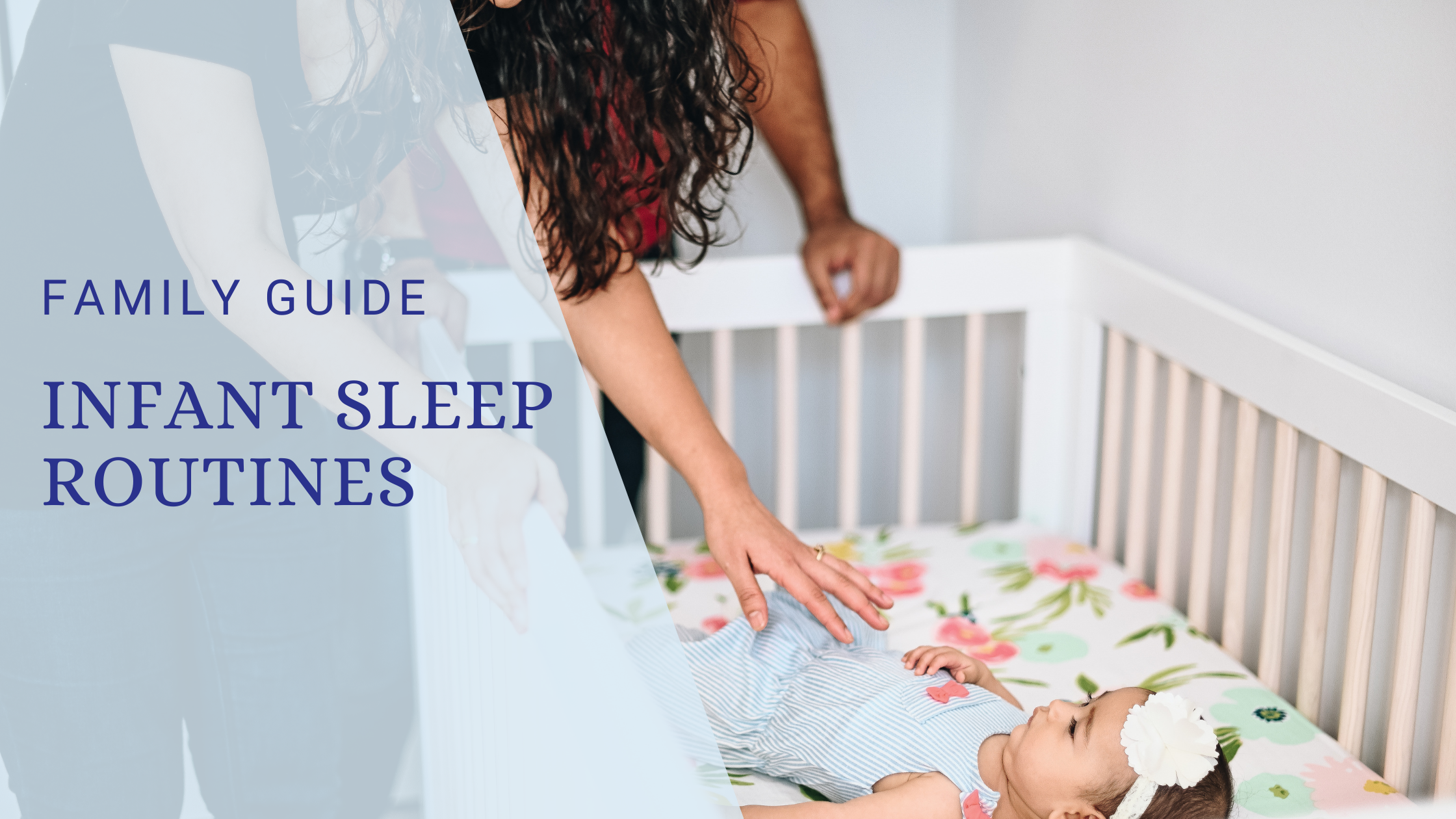Home » Educational Resources » Tips for Getting Your Baby on a Sleep Routine

Establishing a sleep routine for your baby is essential for their development and your peace of mind. Consistent sleep patterns help babies thrive and allow parents to rest and recharge. Here are some expert-backed tips to guide you through the process, with a focus on responsive and nurturing approaches.
1. Create a Calming Bedtime Routine
A soothing bedtime routine is key to helping your baby wind down. Dr. Craig Canapari, a pediatric sleep expert at Yale Medicine, recommends establishing a predictable sequence of calming activities, such as a warm bath, gentle rocking, or reading a short story. Consistency is important, as it helps your baby recognize that it’s time to sleep, creating a sense of security and relaxation.
2. Design a Comfortable Sleep Environment
The sleep environment significantly impacts your baby’s ability to settle and stay asleep. Research published in Sleep Medicine (2020) emphasizes the importance of a dark, quiet, and cool room. Consider using white noise machines to mask household sounds and blackout curtains to keep the room dark. Maintaining a comfortable room temperature (around 68-72°F) can also promote better sleep.
3. Respond to Your Baby’s Cues
While setting a routine is important, being attuned to your baby’s individual needs is equally crucial. Dr. William Sears, a pediatrician and author of The Baby Sleep Book (2020), advocates for a more responsive approach. If your baby cries, attending to them promptly with soothing words, gentle pats, or rocking helps build trust and reassures them that they are safe. Over time, this responsive care will help your baby feel secure enough to settle more easily.
4. Gradually Establish a Predictable Feeding and Sleep Schedule
A flexible but predictable schedule can help synchronize your baby’s feeding and sleep times. As your baby grows, the American Academy of Pediatrics (AAP) recommends gradually spacing out feedings to encourage longer sleep stretches at night. This helps your baby learn when to expect food and when it’s time to sleep, making the routine more effective.
5. Encourage Gentle Self-Soothing
While it’s important to respond to your baby’s cries, gently encouraging self-soothing can also be beneficial. Dr. Heather Turgeon, co-author of The Happy Sleeper (2020), suggests allowing your baby to drift off to sleep on their own after comforting them. For example, you can place your baby in their crib when they are drowsy but awake, giving them a chance to fall asleep independently while knowing you are nearby.
6. Practice Patience and Flexibility
Developing a sleep routine takes time and flexibility. While routines are helpful, Dr. Laura Markham, a clinical psychologist and author of Peaceful Parent, Happy Kids (2020), reminds parents that every baby is unique. It’s important to adjust the routine as needed based on your baby’s temperament and developmental stage. Consistency paired with responsiveness will help you find the right balance.
Conclusion
Creating a sleep routine that is both structured and responsive to your baby’s needs is essential for their well-being and your peace of mind. By following expert advice and tailoring the routine to your baby’s individual cues, you can help establish healthy sleep habits in a nurturing and supportive way.
Key Takeaways
- Responsive Routines Build Trust: Attending to your baby's cries promptly helps build trust and a sense of security, which can lead to more effective and comforting sleep routines.
- Consistent Sleep Environment Matters: A dark, quiet, and cool sleep environment is crucial for helping your baby settle and stay asleep through the night.
- Flexibility is Key: While a predictable routine is important, being flexible and responsive to your baby’s unique needs ensures that the routine is both effective and nurturing.
Ready to find your perfect Nanny?
We conduct a custom search for your family. Start your search today by filling out the family application.

